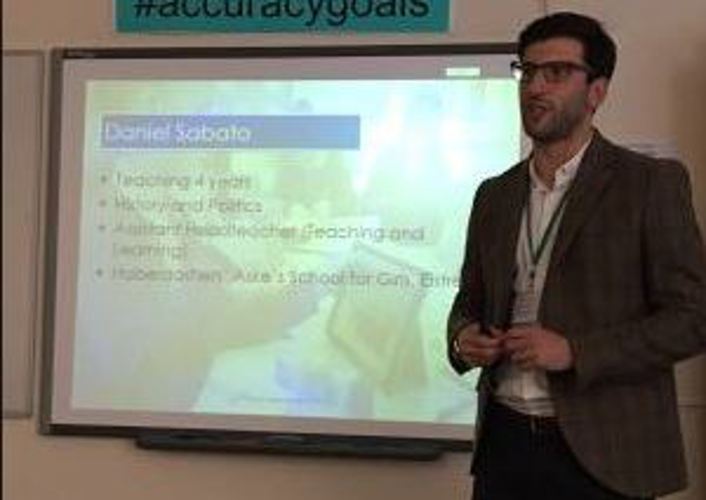Should we teach 9/11 and the rise of terrorism in schools?

Responding to recent criticism by Lord West that schools are failing to adequately teach students about the events of 9/11, Daniel Sabato, Assistant Head at Haberdashers’ Aske’s School for Girls, argues these lessons are more valid than ever before.
Recent comments by former First Sea Lord and former Chief of Defence Intelligence, Lord West, criticising schools for failing to adequately teach students about the events of 9/11 are entirely valid, now more than ever before.
The frame of reference by which we view the world around us has undoubtedly been altered by the series of events set in motion on September 11th, 2001, in New York City and Washington D.C. These are events that I, and many others, grew up watching on television, reading about in newspapers or discussing with family. As a teacher of History and Politics, I am able to join the dots between 9/11, the ‘War on Terror’ that followed in Iraq and Afghanistan, and the rise of radical Islam and terrorism that cast its shadow over Britain on 7/7. It is only through a comprehensive understanding of the context that one can begin to unpick the rise of Islamic State in Middle East and the multiple tragedies that have beset the people of Syria and cities across Europe in recent years. In this instance, context is essential.
Schools – where collective memory is shaped – are now full of students who know very little about this context simply because they were not alive on September 11th, 2001. Teachers face a difficult conundrum, not simply how to teach such a topic, but whether or not they teach it at all.
Both at school and at home, many children are encouraged to seek enjoyment in learning, exploring new ideas and with it, their own curiosity. As teachers, we guide our students towards reliable and appropriate sources of information that will open doors to complex narratives in the hope that they begin to form their own understanding on a subject. But exactly what we teach rarely comes under scrutiny. Lord West’s comments are therefore well placed, with very few schools teaching their students about 9/11 and its aftermath; as such, our curious and open-minded students are turning to alternative sources of information in search of answers, entirely devoid of any guidance or structure.
The enormity of 9/11 and its aftermath cannot be downplayed within the wider context of the current political and social climate. Many students are aware that this was an event that cast a shadow over the lives of many, perhaps not as directly as New Yorkers, but certainly in the years that followed through Britain’s military involvement in Iraq and Afghanistan, and consequently the rise of terrorism across Europe and the Middle-East. Arguably, such a discussion has become increasingly more pertinent following the election success of Donald Trump in the United States, and the upcoming election campaigns of Marine Le Pen’s Front National in France and the upsurge in right-wing populism across Europe.
Given the significance of the subject in forming the status quo, it begs the question of why many schools have yet to incorporate 9/11 into their teaching. There are many reasons for this; primarily centred on where such a topic should reside. Should responsibility fall upon our colleagues in the History Department, despite it taking place fifteen years ago? Might it fit more suitably in a Religious Studies scheme of work, or could it be considered in PSHCE? Evidently, the topic of 9/11 is multifaceted, and would require a great deal of time and collaboration between departments in order to treat it with the sensitivity that it requires. What of the topic itself, is it simply too sensitive in many contexts? Would there be a negative reaction from parents and the wider community? What kind of conversations are our students having with their parents about the topic, if they are at all? There may also be an element of truth in the fact that schools simply don’t want to tackle the complex and ugly truth of September 11th, the events that followed in Iraq and Afghanistan, and ultimately the rise of radical Islam and Islamophobia that has permeated the political and social discourse. There are clearly many reasons why 9/11 is not being taught in UK schools, none of which provide justification for its continued absence.
An understanding of 9/11 and its aftermath should be a fundamental component of society. History has shown what can happen if such topics are perpetually ignored. Given the current political, social and economic climate in the UK, Europe, and the United States, it seems that now more than ever teachers and schools have a duty to help navigate our students away from distorted truth and misconceptions.

